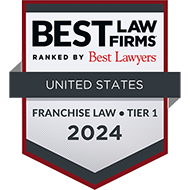Dealing with copycats can be a major headache for any small business owner. Trademark registration protects your name from replication, but it does not prevent competitors from using a similar name. You may have a stronger case if the violation is obvious, but if not, the court will have to examine several considerations before making their determination.
Likelihood of confusion
Suppose another company trademarks a similar name, product, or phrase after you. In that case, the court will consider how likely customers may be confused or think the two companies are the same or associated.
Polaroid factors
To determine the likelihood of confusion, the court may refer to the Polaroid factors or the elements outlined in the Polaroid Corp. v. Polarad Elecs. Corp. case. These factors include:
Strength of the plaintiff’s mark
This metric considers how strong or recognized your trademark is. Some marks are widely known, while others are only recognized in niches. For example, McDonald’s is famous worldwide, whereas Arby’s may be less well known. The stronger your mark, the higher your legal priority.
Degree of similarity
Marks can be misleading to customers even if they are not identical. To determine similarity, the court will consider the appearance, sound, commercial impression, and meaning of each mark.
Proximity of products
Proximity considers how close the products or services of the two companies are to each other. The more distinct their products are, the more they can use similar trademarks. One clear example is Dove for beauty products and Dove chocolate.
Actual confusion
Providing evidence of actual confusion, such as a survey, is not required but may help convince the court of infringement. The proof must show that a reasonably discerning shopper cannot tell the difference between the two businesses.
If the other company put together a similar mark to profit off yours, the court may be convinced to rule against them. However, when determining infringement, the likelihood of confusion still bears more weight than intent.
Going to court for infringement can be costly and time-consuming. Sometimes, it pays to focus on growing your business and perfecting your products instead to gain loyal and discerning customers. If you are set on taking legal action, it would be best to consult a lawyer first.



